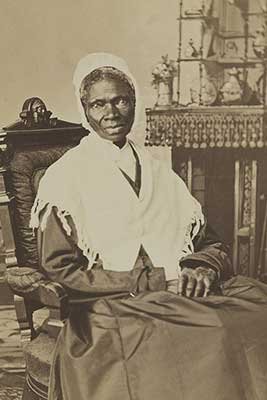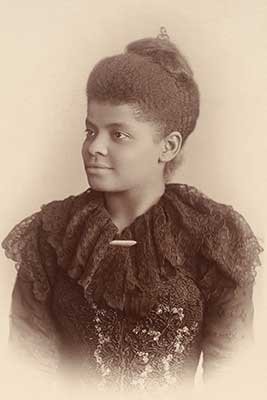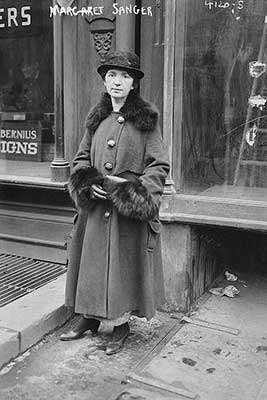Many mothers throughout history have fought for the rights of all people. They have advocated for equality and change, and their work has made the world a better place.
In this blog post, we will discuss ten inspiring mothers who have made a difference through their advocacy. Each of these women has an incredible story that deserves to be shared!
Sojourner Truth.

Sojourner Truth was an African-American abolitionist and women’s rights activist. She was born into slavery but escaped to freedom in 1826.
She then dedicated her life to fighting for the equality of all people. In 1851, she gave a famous speech called “Ain’t I a Woman?” in which she spoke out against the discrimination against women and African Americans. Her words were powerful and helped to inspire many people to fight for their rights.
Sojourner Truth was the mother of five children, all of whom were born while she was enslaved in New York, and she also helped to raise her granddaughter.
Despite all of the challenges she faced in her life, she remained an outspoken advocate for justice and equality. She believed all mothers should be treated with respect and given the same rights as all other people.
She continued to fight for equality until her dying day and is remembered as an important figure in history.
Sojourner Truth was one of the many mothers who advocated for change and equality. Her work helped to inspire others to fight for their rights, and she is remembered as an important figure in history.
Bella Abzug.
One of the many inspiring things about mothers is their incredible ability to fight for what they believe in, even in the face of adversity. Such is the case with Bella Abzug, a civil rights attorney and women’s rights activist who was instrumental in passing the Equal Rights Amendment.
Born in 1920, Abzug was raised in a Jewish family in New York City. She developed a strong interest in social justice at an early age, and she later attended law school with the intention of fighting for civil rights. After working on several high-profile cases, Abzug co-founded the National Women’s Political Caucus in 1971.
She also helped to organize the iconic “Women Strike for Peace” march in 1970, which drew over 50,000 participants. In addition to her many accomplishments as an attorney and activist, Abzug also served as a member of the U.S. House of Representatives from 1971 to 1977.
She was married and had two children, but she did not let her role as a mother stop her from fighting for what she believed in. She was a strong advocate for equal rights, and her legacy continues to inspire mothers and daughters worldwide.
Coretta Scott King.
Coretta Scott King was an iconic American civil rights leader. Born in 1927, she met her future husband, Martin Luther King Jr., while studying at Boston University.
The two were married in 1953 and had four children together. In 1955, Mrs. King helped organize the Montgomery Bus Boycott after her husband was arrested for refusing to give up his seat on a bus.
Over the next few years, she would play an important role in the civil rights movement, participating in nonviolent protests and giving speeches across the country. In 1968, she was by her husband’s side when he was assassinated in Memphis.
In the aftermath of his death, Mrs. King became even more active in the civil rights movement, campaigning for better working conditions and educational opportunities for African Americans. In her later years, she also advocated for LGBT rights, AIDS awareness, and world peace.
Mrs. King passed away in 2006, but her legacy as a powerful advocate for equality lives on.
Ida B. Wells-Barnett.

Ida B. Wells-Barnett was an African-American investigative journalist, educator, and early leader in the civil rights movement. She documented lynching in the United States, showing that it was often used as a tool to intimidate and control black people rather than a response to actual criminal activity.
Her reporting led to national and international outrage, and she continued to speak out against lynching throughout her lifetime. In addition to her work as a journalist, Wells-Barnett was also an active organizer, working to improve educational opportunities for African Americans and pushing for equal rights under the law.
She was one of the founders of the National Association for the Advancement of Colored People (NAACP), and she continued to fight for justice until her death in 1931. Ida B. Wells married Frederick Barnett, and they had four children together.
Despite the many advances made since Ida B. Wells-Barnett’s time, mothers still have to fight for their rights. In many parts of the world, women are still not treated as equal citizens and do not have the same opportunities as men.
Harriet Tubman.
Harriet Tubman was born into slavery in 1822 and spent the first four decades of her life working as a slave on plantations in Maryland. In 1849, she escaped to Philadelphia, and she soon became a leading abolitionist.
Over the next decade, she helped hundreds of enslaved people escape to freedom on the Underground Railroad. Tubman was also an active participant in the Civil War, serving as a nurse, a cook, and a spy for the Union Army.
After the war, she devoted herself to helping freed slaves adjust to their new lives. She married a former slave in 1869 and adopted a daughter, whom she had originally rescued from slavery.
Tubman spent the last years of her life campaigning for women’s suffrage and working as a lecturer. She passed away in 1913, but her legacy continues to inspire people around the world.
Eleanor Roosevelt.
In Eleanor Roosevelt’s day, women were largely confined to the home, and stereotypes about their abilities abounded. Yet, through her advocacy for equal rights, Roosevelt helped to change the world for future generations of women.
She was an active member of the National Woman’s Party and a key player in the campaign for the passage of the 19th Amendment, which granted women the right to vote. She also served as the first chair of the United Nations Commission on Human Rights and played a major role in drafting the Universal Declaration of Human Rights.
Thanks to her tireless efforts on behalf of equality, Roosevelt helped to create a more just and equitable world for all.
Eleanor Roosevelt, mother of six and wife of President Franklin D. Roosevelt, was one of the most influential women of her time. As First Lady, she used her platform to advocate for issues like civil rights and poverty alleviation.
After her husband’s death, she continued to work for social justice as a diplomat and human rights activist. Roosevelt was a powerful voice in the fight for equality, and her work helped improve the lives of millions of people worldwide.
She is an inspiration to all who strive to make a difference in the world, and her legacy will continue to live long after her death.
Margaret Sanger.

Among the many mothers who have fought for equal rights, Margaret Sanger stands out as a particularly effective advocate. Born in 1879, Sanger grew up in a time when women had few legal rights and little control over their own lives.
As a young woman, she witnessed firsthand the devastating effect unwanted pregnancies could have on women’s health and well-being. Inspired by her own experience and the example of other social reformers, Sanger devoted her life to fighting for women’s reproductive rights.
In 1916, she founded the National Birth Control League, later known as Planned Parenthood. She married and had three children, but she never lost sight of her goal of making contraception accessible to all women.
Through her tireless work, Sanger helped make contraception more accessible and acceptable, ultimately giving women more control over their bodies and lives. In doing so, she made an indelible mark on the world and helped to create a more just society for all.
Although she is best known for her work as a birth control advocate, Margaret Sanger was also a passionate champion of women’s rights.
Throughout her life, she campaigned for the rights of women to vote, hold property, and live free from violence and oppression. In addition, she was a fierce advocate for equal access to education and employment.
In many ways, Sanger was ahead of her time, and her work laid the foundation for the modern women’s rights movement.
Betty Friedan.
Betty Friedan was an American writer, activist, and feminist. She is credited with starting the “second wave” of feminism in the United States. In 1963, she published The Feminine Mystique, a book that critiqued the idea that women could only find satisfaction through domestic work and childrearing.
The book’s success helped to launch the feminist movement of the 1960s and 1970s. Friedan was also a founding member of the National Organization for Women (NOW), which fought for equal rights for women in the workplace.
Thanks to her tireless advocacy, women today enjoy greater equality than ever before. Betty Friedan was truly the mother of the feminist movement.
Betty was the mother of three and an active voice in the feminist movement, fighting for equal rights for women in all aspects of life.
She also played a key role in the passage of the Equal Rights Amendment (ERA). Though the ERA ultimately failed to be ratified, Friedan’s work helped to bring about significant changes for women in America, including greater access to education and employment opportunities.
She is a reminder that even one person can make a difference in the fight for equality.
Elizabeth Cady Stanton.
Elizabeth Cady Stanton was one of the most important figures in the fight for women’s rights in the United States. Born into a privileged family in 1815, Stanton was exposed at an early age to the double standard that existed for women.
Despite her intelligence and drive, she was not allowed to attend college or pursue a career. This experience helped to fuel her passion for equality, and she quickly became a leading voice in the fight for women’s rights.
In 1848, Stanton helped to organize the Seneca Falls Convention, one of the first large-scale gatherings of women’s rights advocates. She also played a key role in writing “The Declaration of Sentiments,” a document that outlined the many ways in which women were oppressed.
Stanton had seven children, but she didn’t let her domestic responsibilities stop her from fighting for what she believed in. She remained an active voice in the women’s rights movement until she died in 1902.
Throughout her life, Stanton spoke out against injustice, and her work helped pave the way for future generations of feminists.
Ruth Bader Ginsburg.
Ruth Bader Ginsburg was a champion of gender equality and equal rights for all. She served as a powerful voice on the Supreme Court for over 27 years, and her legacy will continue to inspire future generations of mothers who fight for justice.
Ginsburg was born in Brooklyn, New York, in 1933. She attended Cornell University, where she met her husband, Martin Ginsburg. The couple had two children together, Jane Ginsburg and James Ginsburg.
After graduating from Columbia Law School, Ginsburg began her career as a law professor at Rutgers University. In 1972, she co-founded the Women’s Rights Project at the American Civil Liberties Union.
Ginsburg argued six landmark cases before the Supreme Court, winning five of them. In 1980, she became the second woman to be appointed to the U.S. Court of Appeals for the District of Columbia Circuit.
President Bill Clinton nominated Ginsburg to the Supreme Court in 1993, and the Senate unanimously confirmed her. As a Supreme Court Justice, Ginsburg continued her advocacy for gender equality and equal rights for all Americans.
In 2018, Ginsburg underwent surgery for pancreatic cancer. Despite her health scare, she returned to the Supreme Court and continued to serve until she died in 2020.
Her legacy will continue to inspire future generations of mothers who fight for justice.
Conclusion.
Mothers have always been at the forefront of the fight for equal rights, and they continue to be a powerful force for change in our world.
From Margaret Sanger to Ruth Bader Ginsburg, mothers have made an indelible mark on history and helped to create a more just society for all.
We owe them a debt of gratitude, and we must continue their fight for justice. Thank you.

Meet Brenda Tillman: your go-to expert in Cognitive Behavioral Therapy! Not only is she a seasoned therapist, but she’s also a passionate mom blogger who never misses a beat. Dive deep into her insightful blogs, backed by her extensive coursework in Parenting Skills, Learning, and Education. Brenda’s heartwarming family – a son, two daughters, and their adorable pets – often take center stage in her writings. From parenting hacks and relationship tips to health & fitness nuggets, Brenda has been enlightening her readers for over half a decade. Stick around, and you’re bound to discover gems from a mom who wears many hats with grace!
Reviewed By: Joanna Perez and Marcella Raskin
Edited By: Lenny Terra
Fact Checked By: Gabrielle J. Smith
Photos Taken or Curated By: Matthew Mansour